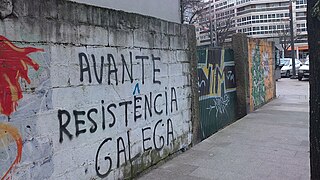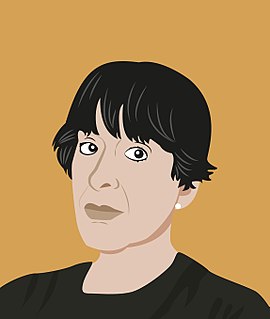
María del Amparo Alvajar López Jean (August 11, 1916 - May 1998) was a Spanish journalist, dramatist, and writer from Galicia, as well as a translator for international organizations. [1]
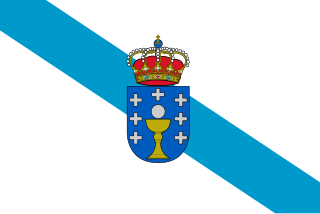
Galicia is an autonomous community of Spain and historic nationality under Spanish law. Located in the north-west of the Iberian Peninsula, it comprises the provinces of A Coruña, Lugo, Ourense and Pontevedra, being bordered by Portugal to the south, the Spanish autonomous communities of Castile and León and Asturias to the east, the Atlantic Ocean to the west, and the Cantabrian Sea to the north. It had a population of 2,718,525 in 2016 and has a total area of 29,574 km2 (11,419 sq mi). Galicia has over 1,660 km (1,030 mi) of coastline, including its offshore islands and islets, among them Cíes Islands, Ons, Sálvora, Cortegada, and—the largest and most populated—A Illa de Arousa.
Amparo Alvajar was born in A Coruña on August 11, 1916. She was the daughter of Republican politician César Alvajar and Amparo López Jean. Her siblings included Ana María Alvajar L. Jean, María Teresa Alvajar López, and Javier Alvajar López. She excelled in musical and intellectual pursuits from a young age. She studied commerce in A Coruña. [2]
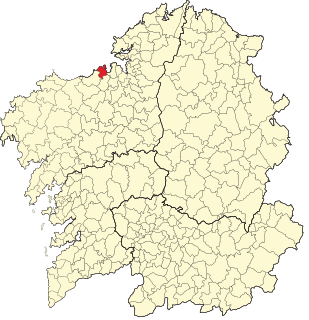
A Coruña is a city and municipality of Galicia, Spain. It is the second most populated city in the autonomous community and seventeenth overall in the country. The city is the provincial capital of the province of the same name, having also served as political capital of the Kingdom of Galicia from the 16th to the 19th centuries, and as a regional administrative centre between 1833 and 1982, before being replaced by Santiago de Compostela.
In the Second Republic, she worked in the city of A Coruña and was secretary of Casares Quiroga. With the victory of the Popular Front, she relocated to Madrid to work for the Secret Services of the Ministry of the Interior which was under the direction os Casares Quiroga. After the revolt of July 18, 1936, she moved to Valencia where she married Arturo Cuadrado. Later, she moved with the government to Barcelona where her only daughter, Silvia, was born. She went into exile in France, then traveling from Bordeaux to Buenos Aires. Amparo lived in Argentina in 1955, where she published articles and essays on the theater and Galicia, as well as working on Spanish translations. She also published the dramatic comedies Amada y Tu and Un balcón para los Lester. She later married an Argentine lawyer with whom she moved to Mexico. Years later, she moved to New York City, working as a translator at the United Nations. Afterwards, she relocated to Paris, where she worked as a translator for Correo da UNESCO . In 1961, she was the director of the translation team at the International Labour Organization in Geneva, and was also a translator in the Disarmament Committee, the Atomic Energy Organization and during the conference on European security. She retired in Monção where she died in May 1998. [2]

Madrid is the capital of Spain and the largest municipality in both the Community of Madrid and Spain as a whole. The city has almost 3.3 million inhabitants and a metropolitan area population of approximately 6.5 million. It is the third-largest city in the European Union (EU), smaller than only London and Berlin, and its monocentric metropolitan area is the third-largest in the EU, smaller only than those of London and Paris. The municipality covers 604.3 km2 (233.3 sq mi).

Valencia, officially València, on the east coast of Spain, is the capital of the autonomous community of Valencia and the third-largest city in Spain after Madrid and Barcelona, with around 800,000 inhabitants in the administrative centre. Its urban area extends beyond the administrative city limits with a population of around 1.6 million people. Valencia is Spain's third largest metropolitan area, with a population ranging from 1.7 to 2.5 million depending on how the metropolitan area is defined. The Port of Valencia is the 5th busiest container port in Europe and the busiest container port on the Mediterranean Sea. The city is ranked at Beta-global city in the Globalization and World Cities Research Network. Valencia is integrated into an industrial area on the Costa del Azahar.
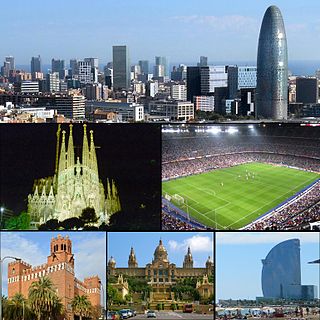
Barcelona is a city in Spain. It is the capital and largest city of Catalonia, as well as the second most populous municipality of Spain. With a population of 1.6 million within city limits, its urban area extends to numerous neighbouring municipalities within the Province of Barcelona and is home to around 4.8 million people, making it the sixth most populous urban area in the European Union after Paris, London, Madrid, the Ruhr area and Milan. It is one of the largest metropolises on the Mediterranean Sea, located on the coast between the mouths of the rivers Llobregat and Besòs, and bounded to the west by the Serra de Collserola mountain range, the tallest peak of which is 512 metres high.









